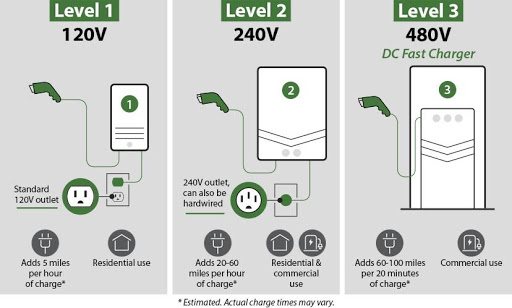How to Buy (or Not Buy) an Electric Vehicle (EV)

By Ben Kogan
Ben Kogan is the founder of Reusable Solutions and a member of 350Brooklyn who is participating in the Carbon Free January Challenge. Learn more here.
Hello, my name is Ben Kogan, you may know me as the guy who always has a musical instrument on hand on zoom calls. I’ve been curious about electric vehicles for a few years now. It started taking hold in 2019 when I learned that transportation accounts for 28% of U.S. Carbon emissions.
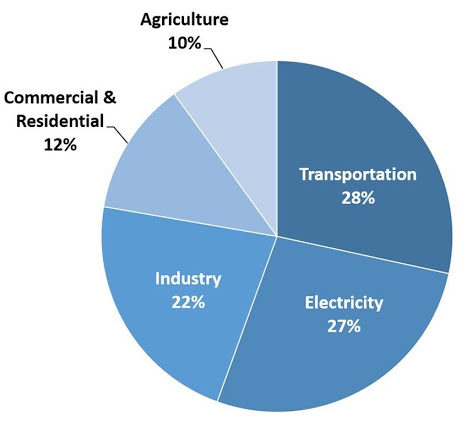
Sources of Greenhouse Gas Emissions in 2018
Half of the transportation carbon emissions is from personal transport. I started lobbying for the Green New Deal around that time and found myself in Chuck Schumer’s office asking him to support the Drive America Forward Act (a tax credit for Electric Vehicles or EV) and the 100% Clean Economy Act to guarantee we get to 100% clean energy by 2050. I’m a full believer in buying an EV even if it’s not as cheap or easy as their gas guzzling cousins because I want to make an investment in the future world I want to see.
Full disclosure here, I do own a car and now live in Massachusetts. I had a car in NY and my motto was “what’s the first rule of having a car in NYC? Don’t drive it.” I followed that pretty closely and only had to fill my tank every 2 months or so. So the best thing to do is not have a car, but if you have to drive a car an EV is the way to go. Along, with lobbying for better public transportation like high speed rail. I recently moved back up to Massachusetts where I’m from and my wife and I and our 18 month old Theo are planning on moving to Vermont in the next couple months. So my situation has changed. Anyhow, getting an EV has really piqued my interest on a scientific and carbon emissions level. I’ve been spending the last couple weeks researching EVs and spending more time on Car and Driver than I ever have in my life. So if you’ve been curious about an EV and are looking for a first time beginners guide, this is your stop. Hop in.
Criteria for Me
- $300 a month or less
- Over 250 mile range
- 4Wheel Drive/All Wheel Drive (AWD)
Budget
I may be giving too much away about my financial status but I find that it might be useful for others experience to get a sense of what I can afford so they can compare their own situation to mine. Based on my budget I can roughly afford a car that’s $21,000-23,000. I plan on financing it, making a down payment of $5,000 and could afford roughly $300 a month. That’s what gets me there.
This car loan calculator is a handy tool for working out budgeting details if you’ looking to buy a vehicle.
Range
The first thing I look for is range. Some people have termed this “range anxiety”. I’ll start with the drawbacks of EVs. They have a limited range compared to gas vehicles. My current car, an Xterra gets about 300 miles per tank. An EV can get 150-230 miles. The other issue is filling it up, while there are EV charging stations on the highway it can take 30 mins to 9 hours to charge a car. I’m specifically interested in the Hyundai Kona electric. The charging times vary depending on the charger available. So you’ll have to spend time looking at where the chargers are available. I’m getting the feeling that I’ll need to present myself and you as well with specific driving situations. See charging time and charger map for more info.
Government Tax Credits & Incentives
Federal
There is a tax credit for up to $7,500 for certain cars. This is very interesting and complicated but after 100 hours of research I understand enough to pass it on. EVs have a federal tax credit of. $7,500 if you buy an electric vehicle. However, there are exceptions. This credit is per manufacturer and up to a certain amount of cars they have sold. Once they sell 200.000 EVs then the tax credit no longer applies. Tesla is pretty much the only manufacture that isn’t eligible anymore. This is too bad since its it’s the only reasonably priced car that has AWD.
See these resources for cars with eligible tax credits:
- Want a Tax Credit for Buying an Electric Vehicle? Move Fast — in Wired
- Federal Tax Credits for New All-Electric and Plug-in Hybrid Vehicles — U.S. Department of Energy
State
Some states like NY, MA and VT offer a rebate. It’s pretty much if you buy a car there they give you money back.
General Rebates
| State | Rebate |
|---|---|
| New York | $2,000 |
| Massachusetts, Vermont | $2,500 |
Check this site to confirm your eligibility for an incentive or rebate in your location.
Not to make you New Yorkers jealous but in VT ON TOP of the state rebate the power companies are offering an additional $1,000 – $1,500 rebate if you get an all electric car plus a 240 volt charger to charge your car.
AWD / 4WD
I gotta say this is very hard to find. The only EV that has AWD and is under $40,000 is a Tesla and remember I’m a musician. But Teslas aren’t as expensive as I thought. I thought Tesla, what that’s like $120,000 but it’s not. It’s $37,000 for the Tesla 3. I can’t find an AWD vehicle besides this at this price point.
Charging Time and Charger Maps
Types of EV Charger
This one could be big one. A full charge can take from 30 minutes to 8 hours depending on the charger.
| Charger Type | Time to Charge | Notes |
|---|---|---|
| Level 1 | Up to 20 hours | It’s your typical outlet. The same kind you use for charging your phone. |
| Level 2 | 4-5 hours | This is like a dryer outlet. |
| DC Fast Charger | Tesla super charger, 20-30 mins | Easy to find at highway rest stations |
Charger Maps
Find a charger on your route here:
What About Used?
I 100% support buying used in everything but and this is a big but, that the older EVs don’t have the range of the current ones. They have about 100 or so miles on a charge and for my needs it’s just not enough. I plan to tour again once the Covid pandemic is all over and the idea of driving only 1.5 hours then having to charge for 30 minutes might not work out for me.
Kwh Engine Guide
They make it a little deceptive as to what you’re looking for range wise. Most engines are 40 or 62KwH. Get the 62 if you need more than 150 mile driving range. If it’s mostly for short commutes you might be ok with the 40.
Cars I’m Looking At
Let’s get into specifics. I’ll take a look at 4 cars in my general price range and compare them.
Nissan Leaf 40kwh Engine
- Price: $30,980
- Range: 150 miles
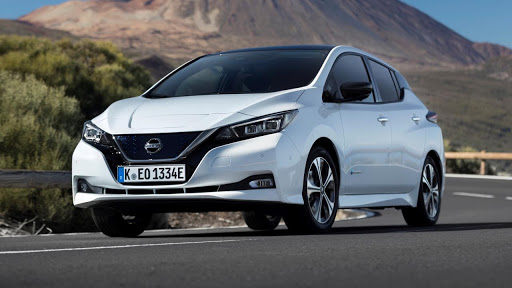
Nissan Leaf
Tesla Model 3
No tax credit
- Price: $36,200 (inclues $1,200 destination fee)
- Range: 263 miles
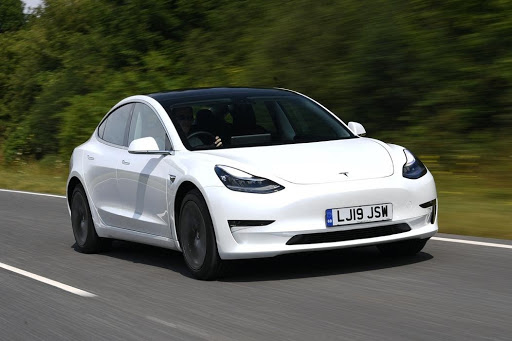
Tesla Model 3
Chevy Bolt
- Price: $37,495
- Range: 259 miles
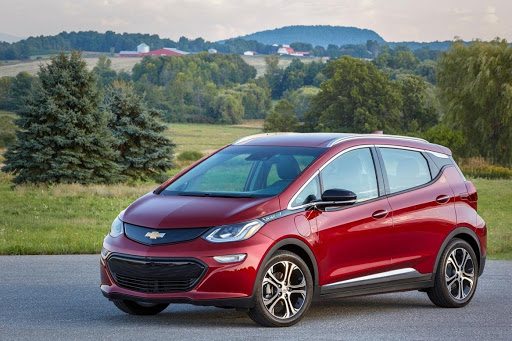
Chevy Bolt
Hyundai Kona Electric (2020)
- Price: $38,330
- Range: 258 miles
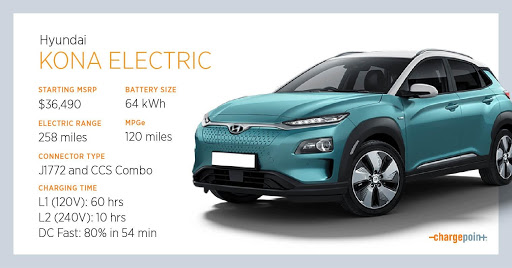
Hyundai Kona Electric 2020
Conclusion
EV’s are finally competitive with gas cars and it’s only going to get better. The R(EV)olution is here! However, I’m quite torn. I’d really like to get an EV but there are no AWD options available in my budget. I might wait till 2021 to see what’s on offer. But, I haven’t written it off yet and buy one now. To find out what I do next follow me on Instagram @Reusable_solutionsnyc. It was a fascinating experience getting to understand the ins and outs of what buying and owning an EV looks like. If you’re in the need for a car, I’d check out all of these EVs and see what works for you. I hope you found this helpful and please reach out with any questions.
More EV Resources
- How to Save a Planet (Great Podcast!): Are electric cars really better for the planet?
- Life Cycle Analysis on EV vs. Gas vehicles
- Special Report: The Electric Car Comes of Age — in Consumer Reports
Get Involved
Also, if you want to support the EV revolutions but can’t afford to or don’t need an EV please support the following bills:
- New York State bill S.9008 — The bill would mandate that all vehicles sold in the state of New York be zero-emission by 2035.
- Drive America Forward Act (S. 1094 and H.R. 2256) — The bill would allow tax credits for purchasers of electric vehicles.
- EV Freedom Action (H.R.5770) — The bill would establish a national network of electric vehicle charging stations, and for other purposes.
- High Speed Rail Corridor Development Act of 2020 (H.R.5805 ) — This bill revises and reauthorizes through FY2024 the high-speed rail corridor development competitive grant program of the Department of Transportation (DOT).
350Brooklyn does not endorse any specific products. The products listed in this article are the opinion of the author only.
© 2020 350Brooklyn


